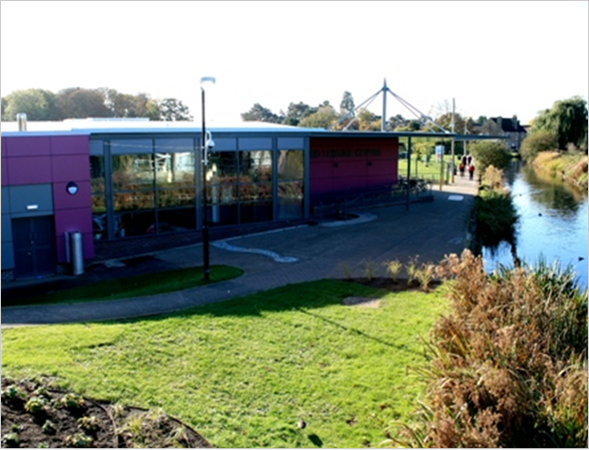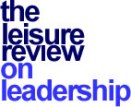I believe effective leadership is fundamental to success in any organisation in times of plenty. In times of austerity, excellent leadership is an essential ingredient in the battle for survival and the future development of the organisation.
Four years into an austerity programme which is likely to last a decade or more, local authorities face significant challenges. To navigate the austerity journey successfully leaders need to understand the challenges ahead of them and they need to adopt an approach to leadership sufficient to rise to the challenge.
Challenges for leaders
Leaders face many challenges: demographic change and the ageing population, population growth and creating sustainable communities, climate change, energy and food security, economic prosperity, inequality, health improvement… All of these and others have implications in local government to a greater or lesser degree. It can be hard for leaders to know where to focus their energies.
However, perhaps the headline challenge facing leaders in local government right now is the financial challenge: how to balance the books when demand for services (and therefore the cost base) is rising and income is reducing, largely as a result of significant cuts in central government grant. The Funding Outlook for Local Government, produced by the Local Government Association, provides a very clear picture through what has become known as the “jaws of doom”, a graph showing costs rising through to the end of the decade, income declining over the same period, and the gap (the jaws) continuing to widen. How we plug that gap is the biggest leadership challenge of our time as leaders in local government. It means difficult choices about where to focus scarce resources.
The challenge for leisure, sport, arts and culture services is acute. The jaws of doom highlight the increasing demands on social care services and the fixed nature of the costs within children’s services and waste management. The LGA analysis suggested that the funding available for all other services will be reduced by close to 50% by 2020.
In 2013 the New Local Government Network carried out a fascinating exercise across the country involving senior officers from a wide range of local authorities. The resulting report, Gaming the Cuts, developed a five-year financial strategy for ‘Anyborough’ and it singled out leisure, sport, arts and cultural services as top of the list for significant cuts. In fact, it went further than that. It concluded that there is a “high probability” that funding for leisure, recreation and cultural services “will be stopped”
We see this scenario being played out in local newspaper headlines across the country week by week. As the recent budget round gathered pace in November last year, the Guardian commented that “local council funding for ‘quality of life’ services such as leisure centres, libraries, and playgrounds will largely disappear in the next three years”.
Approaches to leadership
Against such a backdrop, the leadership challenge related to the future of the leisure service is a very big challenge indeed. What should we do? Is it really a case of “last one out, turn out the lights”? Or is there an alternative future, one which escapes from the jaws of doom, beats the odds in Gaming the Cuts and gives the Guardian a different story to write?
Survival will require courageous leadership with plenty of tenacity, self-belief and resilience, together with the capacity and capability to make, and implement, very difficult decisions about the future of services; these decisions will have an impact on the lives of those we work with, and on the communities which we seek to serve. I believe, however, that the leadership challenge goes beyond survival. The leadership challenge for the local authority leisure service is to define a new future, to create the leisure service of 2020, one that continues to make a difference for people and communities across the country.
In these challenging times I continue to see leaders in the leisure, culture and sport sector who exhibit the imagination, creativity, energy, drive and determination to create a new future, leaders who can perhaps provide a compass to navigate the choppy waters of austerity through to 2020 and beyond. So what is it that these leaders are doing to do to navigate through austerity?
First, they continue to inspire the people they lead. Not with a grand speech but by the example they set, the belief and the passion they demonstrate for what they do, and a character built on infectious values – a relational approach founded on nurturing honesty, trust and integrity, an openness to engage and to listen, and a selfless determination to make a difference.
Second, they lead beyond the leisure service and ensure their services connect with the vision and priorities of their organisations. They make what they do part of the solution that their organisation needs. They marshal the evidence to demonstrate the benefits of leisure, sport and cultural services to improve health and wellbeing and to enhance community cohesion. They show how investment in active lifestyles saves money elsewhere in ‘the system’, and they demonstrate how the culture and sport offer is fundamental to the character, vibrancy and shape of the places they serve.
Third, they find innovative ways to take cost out of the system while prioritising resources on those areas that make the greatest difference in relation to the vision and priorities of their organisation. This is difficult territory, involving tough choices that simply have to be made. It involves new ways of commissioning services, tricky decisions related to asset management and revenue generation, and clarity about what to stop doing.
Finally, they embrace change as an opportunity rather than a threat. In the need to embrace change they see the freedom to innovate, to reimagine the future, and to transform services.
My concern is that leaders with this kind of approach are thinly spread and the scale of the challenge is huge. They will need support if they are to have the resilience to see the job through. We need to find ways to build strong networks within the sector to share and shape emerging ideas. We need to utilise the resources of our national agencies (Sport England, Arts Council England and others) to assist in this process, to connect with the austerity challenge and help define a new future.
North Kesteven has long seen the value of culture, sports and arts services in relation to its vision for its communities. The authority passionately believes in the power of culture, sports and arts services to make a difference and be part of the solution to the challenges of austerity. We are in the process of finalising plans for the arts, and for sport, which will guide us through the next four years. As part of this process, new ideas have emerged leading to new ways of commissioning services and targeting investment to ensure that culture, arts and sports services remain sustainable. In common with many authorities, our ageing leisure centres require investment and new thinking, and the authority has set aside resources for this purpose. As a result, we recently reopened the Sleaford Leisure Centre, with its renewed focus on lifestyle and fitness, following a major award-winning redevelopment programme.
Reimagining the future is possible in times of austerity.
Ian Fytche is chief executive of North Kesteven District Council in Lincolnshire. North Kesteven is a national exemplar for its arts and cultural services and is home to the National Centre for Craft and Design and artsNK. Ian was previously a director at Sport England, leading the organisation’s work on the Manchester Commonwealth Games, the redevelopment of Wembley Stadium and the strategy for sport in England.
Notes:
The Funding Outlook for Local Government, produced by the Local Government Association, is available via www.local.gov.uk
Gaming the Cuts, New Local Government Network, is available via
www.nlgn.org.uk
The Leisure Review, April 2014
© Copyright of all material on this site is retained by The Leisure Review or the individual contributors where stated. Contact The Leisure Review for details.
![]() Download a pdf version of this article for printing
Download a pdf version of this article for printing

